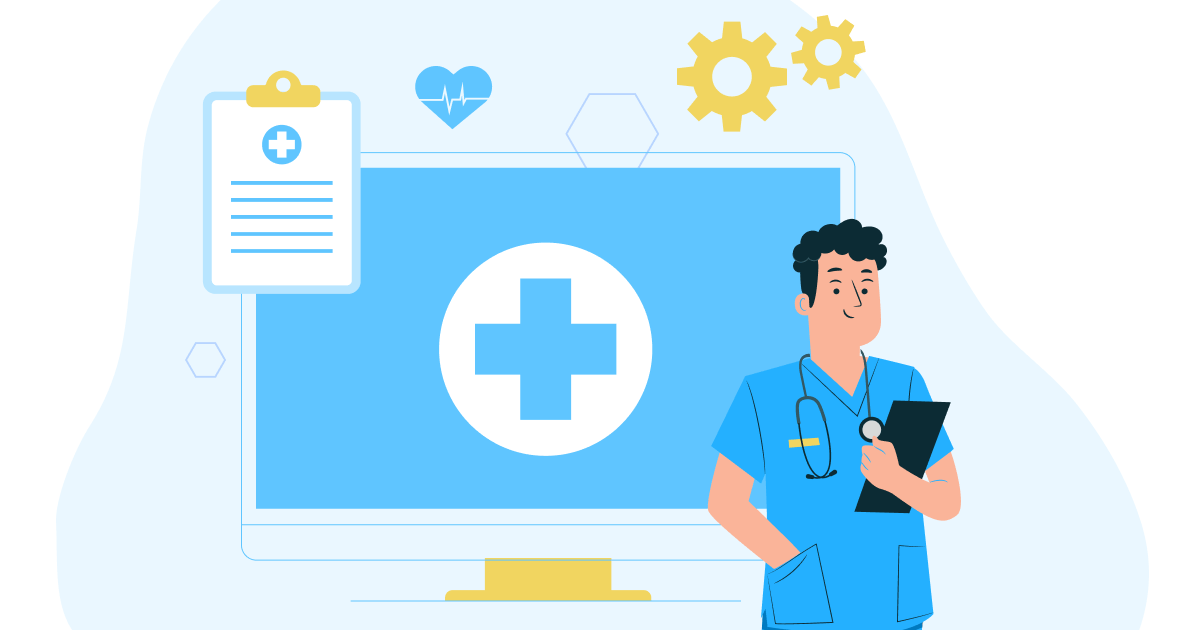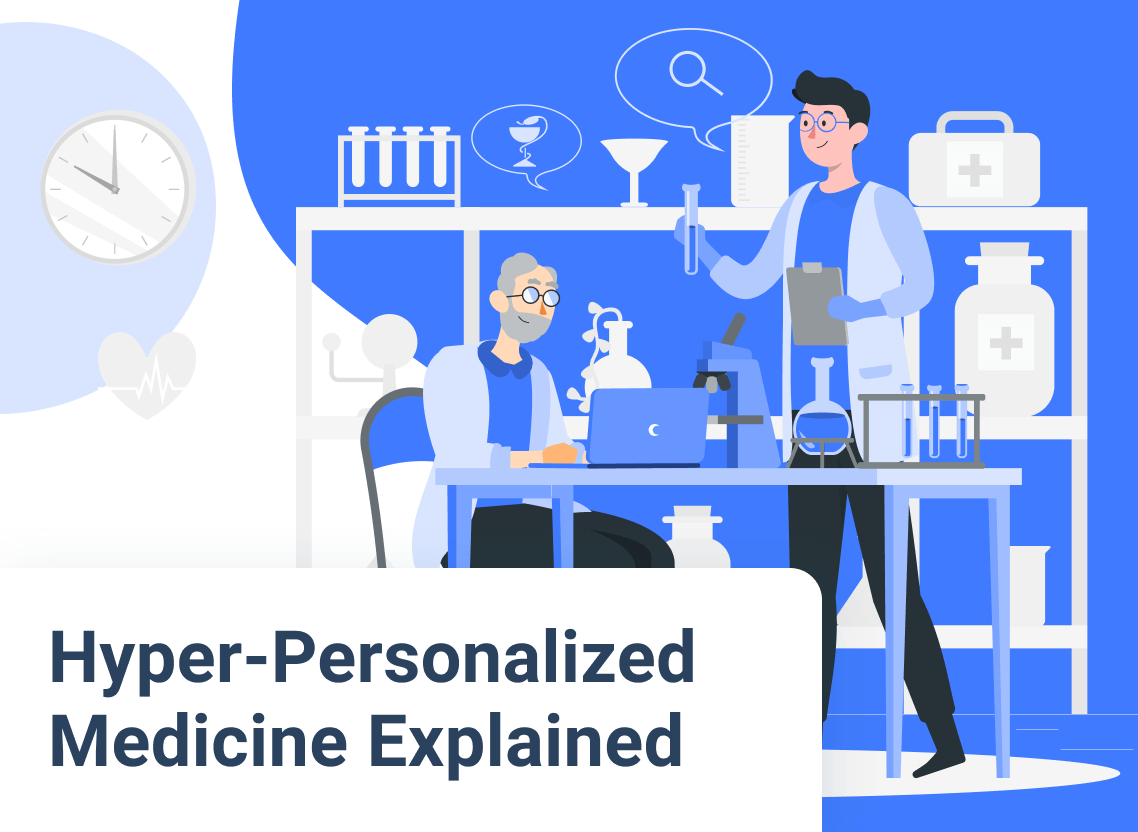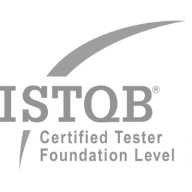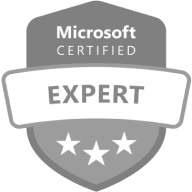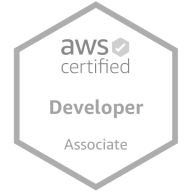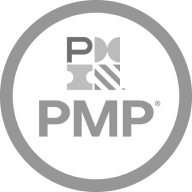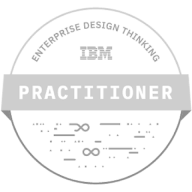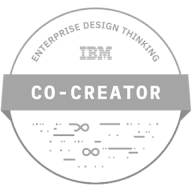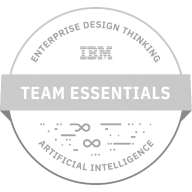
Top 9 Use Cases of Blockchain in Healthcare & Benefits You Should Know
Want to know more? — Subscribe
You have probably heard the term “blockchain” before, but do you know about blockchain use cases in healthcare? It wouldn’t be surprising if you heard it, too. These technologies are steadily changing the entire medical industry, moving on to a more advanced level.
But what are the benefits of using blockchain for healthcare providers or patients? Let’s dig deeper into what these innovations can bring to the healthcare field.
Softermii, with over 8 years of experience in developing healthcare software can help you figure out the benefits of blockchain healthcare projects in more detail. Blockchain tech is among our numerous top-notch cases. In this article, we will explore the major use cases of blockchain in healthcare, benefits, and examples of blockchain in healthcare.
You may also be interested in Blockchain in E-commerce in 2023: Pros and Cons
Blockchain Technology in Healthcare Market (Stats & Facts)
Before we get into what exactly blockchain technology in healthcare is and why you should be using it, let’s explain that fact by the real numbers:
- Around $126 billion — the projected value of blockchain technology in the healthcare market in 2030.
- Nearly $100 billion — the amount saved annually by healthcare companies through the adoption of blockchain for improving their IT operations.
- About $242 million — the amount pharmaceutical and medical device companies invested in blockchain to replace their traditional systems in 2021.
All those numbers should get your attention if you plan on being a significant player in medicine. Hence, let’s learn about blockchain’s benefits for the healthcare field.
Read Also: Guide on Veterinary Practice Management Software Development
Advantages of Using Blockchain in Healthcare Projects
As you can see, investments in blockchain tech are fantastic, and there’s a reason for this: everyone benefits from blockchain use cases in healthcare. Let’s see how this innovation helps the medical field.
Advantages for Healthcare Organizations
Using blockchain for healthcare organizations is helpful in several areas at once. First, it concerns the medical records of patients. With blockchain, EHRs can be securely stored in a decentralized system resistant to hacking and tampering.
Second, hospitals and other healthcare organizations can make faster decisions about the treatment of their patients. It’s possible because all patient data is stored in a single system available 24/7.
Easy access to data provided by blockchain technology also helps speed up the issuance of medical credentials for healthcare personnel.
Advantages for Patients
What is most important to patients? Most likely, it’s the security of their sensitive medical data. Blockchain enables that by giving patients ownership of their medical records.
Furthermore, no one can access patient data without their permission. Blockchain provides such tools as consensus mechanisms, and thanks to them, no one but the patient will be able to view medical information.
Data security powered by blockchain also applies to wearable devices. Patients can transmit information collected by such devices to their doctors in a secure manner.
Another benefit of blockchain in healthcare is that patients can participate in medical research, and blockchain, in turn, will help them monetize this experience. It is also an advantage for doctors, as they will have more study data.
Advantages for Pharmaceutics
Talking about medical research, thanks to the blockchain, pharmaceutical companies can attract more patients for clinical trials of new drugs.
Moreover, due to the immutable nature of the blockchain, information about drugs and related clinical trials will be reliable and easily verifiable. Another benefit we can draw from this is an effortless detection of counterfeit medicines.
Advantages for Insurance
With blockchain technology, patients can quickly receive insurance confirmation. This tech allows for quick data transfer between organizations.
In addition, insurance agreements can be concluded through smart contracts, ensuring patient data safety and convenience for insurers.
Top 9 Blockchain Use Cases in Healthcare
Blockchain in healthcare projects can address some of the biggest challenges that the healthcare industry faces, such as hospital cybersecurity & transparency, interoperability, and patient privacy, while saving many costs.
Using this tech improves personal security for users of a given network, and data breaches are much less likely to happen. Besides, blockchain use cases in healthcare can make many operations faster and automate many of them, saving healthcare providers and patients costs.
Let’s look at the insights on how healthcare providers plan to use new blockchain technologies to improve their medical services.
Read Also: Healthcare Price-Transparency Platform Development
(Source: Deloitte)
Hence, knowing these stats, it’s time to dig deeper into the blockchain’s use cases in healthcare and what real values it brings for being worth implementing.
You may also like: Using Blockchain in Real Estate
1. Patient Data Management
The most obvious example of blockchain use case in healthcare is patient data management.
For instance, someone visiting a hospital can feel much more comfortable handing over things like a social security number and credit card information if they know blockchain encryption is in place. Hackers, in turn, will find it much more challenging to crack a blockchain encryption system.
You’re also looking at reliable storage of personal healthcare data for patients and better accessibility. When someone wants access to their test results, they can set up their account information and find out the results without fearing someone spying on the most intimate details of their life. At the same time, their doctors can access that information easily and without fear of prying eyes.
The integrity of a patient’s medical records is assured through tools such as a patient health information portal, also called a PHI. Electronic health records can easily be transferred to a new doctor and collected through IoT devices that can be compatible with a specific blockchain. Medical insurance claims can easily be processed, as well.
Using healthcare APIs with blockchain technology, it’s the most secure way to protect, especially on a patient’s identity. With an API in place, the patient can decide who should have access to their medical records other than their doctor. They can even dictate whether they want to allow full or partial access.
(Source: HealthIT.gov)
While doctors, based on transparent data, can more easily diagnose what is happening with a patient and provide more definitive and accurate medical treatment.
Learn about Softermii’s experience in doctor appointment system development and video chat app development.
2. High-Security Standards in Data Encryption
Blockchain technology in healthcare certainly has many uses, but you would be hard-pressed to find a better reason than to prevent data breaches. That is what healthcare network users fear more than almost anything else.
It’s not just that they don’t want their payment methods or social security numbers getting out. It’s also that they might not want their medication information being released if something is happening with them that they would prefer to keep private.
As we consider the benefits of applying blockchain to healthcare, we quickly see that a robust security standard is needed to keep this sensitive data from being flung far and wide across the internet. Blockchain provides secured data transfer methods, such as recording and encrypting information and anchoring data to the public blockchain.
The data encryption method in the blockchain is almost hacker-proof. It is very beneficial to be used now when telemedicine applications are dynamically developing, but HIPAA requires the usage of safe data transfer and communication methods in the healthcare industry. Doctors and patients alike are thrilled by this new tech.
3. Healthcare Transactions Control
You would also be correct in assuming people feel better about their payment information when blockchain technology has been implemented. You can apply different encryption methods like transparent database encryption that we’ve integrated into the development of the Extobit project to ensure data safety.
Hospitals and clinics process hundreds if not thousands of patient claims and remittances daily. They also send out requests for outstanding patient payments. Fraudsters can get into all kinds of mischief if they access that data. Identity theft is a real concern with the skill level that some of these hackers cultivate.
With blockchain technology in place, claim denials can be minimized. Underpayments can be quickly reported, reducing human errors and time delays.
Blockchain can streamline many of these processes and lessen payment concerns. Business operations and daily revenue cycles for medical facilities can be optimized.
4. Drug Supply Chain Management
Starting with some statistics, the National Crime Prevention Council has stated that about 10% of the drugs in the global supply chain are counterfeit. That’s a disturbing trend, especially if those who need those drugs aren’t getting the treatment to cure their potentially life-threatening ailments. According to some estimations, this counterfeit drug market is worth up to $200 billion annually.
All blockchain transactions are immutable and timestamped, though. It follows that fraudulent drugs and drug transactions are easy to identify and stop if you use blockchain. Blockchain for drug traceability is yet another one of its uses, as inventory can be managed, and the life cycles of the drugs can also be monitored.
5. Clinical Trials and Healthcare Research Improvement
Researchers obtain and record vast amounts of data when it comes to clinical trials to study the effectiveness of new medications. That might include test results, quality reports, and vital statistics. Blockchain allows researchers to easily access all of that while they are secure and transparent in the knowledge that no one unauthorized is looking at it.
The benefits of using blockchain in healthcare is that it improves structured protocols and ensures informed consent by the trial participants in this area. Smart contracts and timestamps are in place that allow this to happen.
Researchers are kept honest because they must stick to the trial design, and there is no danger of changing the test parameters mid-trial. Besides, blockchain can also connect seemingly disparate study data. Connections that might have been missed will be quickly pinpointed by blockchain tech. All this results in more trustworthy medical research results.

6. Medical Paperwork Management
The management of medical paperwork is another area in which blockchain tech comes in handy.
Hospitals and other healthcare providers can reduce the paperwork their customers and doctors must fill out. Any time a paper-based system can be replaced by a computerized one, it is better for storage purposes, reduces costs and time spent on routine tasks, and even prevents doctors’ burnout.
In addition to that, insurance transactions become easier to track so that nothing is misplaced. Providers and patients don’t have to go through the hassle of providing additional copies of transactions to insurance providers, which everyone involved appreciates.
Read about Softermii’s experience in AR and AI in healthcare.
7. Integration with Wearable IoT Devices
One of the most remarkable capabilities of blockchain innovations at this point is how it can be used with wearable internet of things devices. It allows for better health records monitoring by both patients and doctors.
Blockchain can provide an easily-authenticated, secure platform for integrating data contained within wearables such as fitness, health, or activity tracker devices. The doctors, like the patients, can reach this secured regularly updated data that allows more easily tracking of the changes or patients’ progress.
Thus, blockchain healthcare app development should probably be on the top as the usage of wearable devices is constantly increasing.
(Source: HealthIT.gov)
8. Tracking Medical Credentials
Any patient wants to be confident in the doctor they receive treatment from. Does the specialist have enough qualifications, what’s his previous experience, and where did this doctor work?
Verifying medical credentials is one of the use cases of blockchain in healthcare. This technology can store all healthcare provider information in a single database. Moreover, the blockchain will help in verifying the authenticity of these credentials.
It can also help in hiring medical workers since the employer can easily check all the information about the candidates without extreme bureaucracy. Plus, advanced blockchain security standards protect all medical credentials.
9. Smart Contracts for Insurance
Other popular application of blockchain in healthcare are smart contracts for insurance. This tech allows insurance service providers to transfer their processes to a digital environment and even automate insurance issuance.
Each smart contract will be registered on the blockchain and easily accessible, so there will be no disputes with the insurance terms. Everything related to drug reimbursement or health insurance coverage can be checked online.
Furthermore, smart contracts allow insurers to use advanced analytics, resulting from which providers of such services can optimize insurance plans for their customers.
Challenges of Using Blockchain in the Healthcare Industry
While blockchain in the medical field is becoming one of the most compelling trends in healthcare app development, there’re still challenges to overcome to utilize this emerging tech at its full potential.
We’ve talked about some blockchain in healthcare examples. But it’s commonly understood that this technology can still be developed further by intrepid designers and inventors. Possible obstacles to this could be technical challenges, but what is more potentially invasive are cultural obstacles, regulation, and legislation policies.
For instance, you might have someone who cannot afford a fitness tracker and therefore cannot use one to track their medical data when they visit a hospital or urgent care facility. Maybe there is a regulation in place that restricts the use of blockchain tech in some facilities because of a perceived lack of funding.
Policy change regarding new technology can sometimes move quickly, or it might come about more slowly. It’s difficult to predict, but it will be fascinating to see what the next 10-15 years bring in this area.
The many uses for blockchain in fintech seem self-evident. Anyone associated with the healthcare industry should recognize the potential based on what has already been invented and retrofitted with this tech.
How to Start Blockchain Implementation in Healthcare
The application of blockchain in the healthcare industry has the potential to revolutionize the industry, making it more efficient, secure, and patient-centered. By using blockchain, healthcare providers can ensure that patient data is accurate, secure, and available when needed, improving patient outcomes and reducing costs.
Before implementing blockchain in medicine, it is worth realizing that it’s not just a separate tool that can be easily integrated into the medical organizations’ processes. This technology requires healthcare institutions to take a comprehensive approach and optimize their internal operations.
You can start implementing blockchain technologies in healthcare, for example, by creating a single patient database. In other words, this innovation is a good fit for EHRs. As healthcare organizations integrate electronic medical records, they can migrate to a distributed blockchain ledger.
Healthcare providers can also consider creating solutions for telemedicine powered by blockchain. Such mobile or web applications will ensure seamless interaction between patients and doctors while guaranteeing an advanced level of security.
If you want to implement blockchain in healthcare, the best solution is to turn to specialists in this tech. These can be companies that develop medical software and have a deep understanding of blockchain technology. With the proper support of such experts, you will be able to turn any of the blockchain use cases in healthcare into reality.
Read Also: How to Develop Blockchain Applications Step-by-Step
Conclusion: Is There a Future for Blockchain in Healthcare?
Highlighting examples of the potential applications of blockchain in healthcare, it seems obvious that we’ve just scratched the surface, and technologies will move ahead. With the continued development of blockchain technology, we can expect to see more examples of blockchain in healthcare in the future. To keep your medical business on top, you must consider applying these technologies in your existing or new tech solution.
Despite the current challenges related to the regulation and legislation of blockchain technologies in medicine, this innovation has great potential still. It’s the blockchain that will help solve data security problems, improve medical research, and generally enhance medical care quality.
Having experience with blockchain, we know how innovative and beneficial it is. While being experts in healthcare app development, we understand the industry specialties and how to adapt to one another.
So, we can help you with healthcare software development powered by blockchain tech. Let’s drive the medical industry together. All you need to do is to contact us; while we take care of the rest.
Frequently Asked Questions
How can blockchain be used in healthcare?
Healthcare providers can integrate blockchain tech for numerous purposes. This innovation can help with patient data and drug supply chain management, ensure safe transactions, verify medical credentials and medicines authenticity, etc.
What problems can blockchain solve in healthcare?
Blockchain is primarily about advanced data security. There will be no fraud in the medical field regarding drugs and even medical credentials. Patients, hospitals, and other healthcare organizations can also feel secure about their medical records.
How is blockchain changing the healthcare industry?
Blockchain allows for confidential data storage, faster real-time data exchange, improved treatment, and medical research. This tech also enables streamlining drug supply chain processes, reduces paperwork, and even more.
How expensive is blockchain implementation for healthcare organizations?
Blockchain implementation can be costly for organizations that haven’t yet or only partially undergone digital transformation. This tech requires optimization of internal resources along with an experienced dev team to do the job. Yet, for those who have already adopted technology, blockchain implementation will only become a cost-effective solution.
How about to rate this article?
1673 ratings • Avg 4.4 / 5
Written by:










